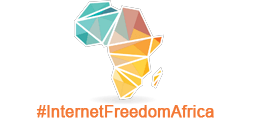By Jason Pielemeier |
“Since men have learned to shoot without missing, we have to learn to fly without perching” — African Proverb
By citing these words in his opening message, Dr. Wairagala Wakabi, the Executive Director of the Collaboration on International ICT Policy in East and Southern Africa (CIPESA), captured both the daunting reality and the irrepressible optimism surrounding the state of Internet freedom in Africa. This dynamic was also captured in Charles Onyango-Obbo’s keynote address, “Many African Governments Hate the Free Internet — And That Is A Very Good Thing.”
I was fortunate to represent the Global Network Initiative at the 5th Forum on Internet Freedom in Africa (FIFAfrica18) in Accra, Ghana from September 27–28, 2018. The event, co-hosted by CIPESA and the Ghana-based Media Foundation for West Africa (MFWA), featured a range of activists, academics, journalists, and government representatives from across the continent and the world discussing topics like censorship, big data, and gender-based violence online. While the topics were familiar to me, FIFAfrica18 offered a unique opportunity to hear fascinating African perspectives, narratives, and stories that are often absent from larger, more international Internet freedom conferences.
Over the two days, it became clear that while authoritarian governments in Africa may have come late to the Internet repression party, they are quickly catching up thanks to their own creative tactics, as well as foreign technology and knowledge transfer. As Onyango-Obbo noted in his keynote, African dictators are weaponizing the Internet for political purposes through the control and manipulation of a new digital bureaucracy (or as he calls it, the “digitocracy” and the “surveillance securitocracy”). Other speakers pointed out how anti-terrorism laws — sometimes left-over colonial versions, in other instances newer, Global War on Terror-inspired copies are being misused — to prosecute speech that should be protected. It was also pointed out that long legacies of information manipulation, combined with the fragility of the free press, have left many African countries susceptible to disinformation campaigns.
Other tactics are more creative. For instance, Tanzania and Uganda have pioneered taxes on social media and blogging respectively, which other governments are now seeking to replicate. And of course, when threatened, these regimes have not been afraid to order brute force network disruptions. Interestingly, the case was also made that the success that some repressive regimes are having with “fake news” may be leading them away from more scorched earth tactics like Internet shutdowns.
These efforts to clamp down on online freedom are often aided and abetted by technology and services procured from outside Africa. The role of China in financing and providing information and communication infrastructure that is perceived to facilitate state surveillance was a consistent topic across the sessions I attended. In addition, participants decried the increasing availability of more targeted hacking tools, peddled by Western and Israeli firms.
The combined power of these two forces — unreliable infrastructure and targeted hacking software — have been perhaps most prominently displayed by the government of Ethiopia, and FIFAfrica18 offered a fascinating opportunity to hear from the Zone 9 bloggers, a group of independent activists who were on the receiving end of their government’s oppression for several years until their recent release. Appearing as a group outside Ethiopia for the first time, the bloggers offered lessons from their experience, including the importance of solidarity, appreciation for support from activists abroad and diplomats at home, and gratitude to social media platforms for limiting the extent to which the government could persecute others in their networks. Perhaps more important though, was the inspiration they engendered through their ongoing commitment to continue to fight for human rights in Ethiopia and beyond.
Consistent with these notes of optimism and defiance were demonstrations of new tools like Netblock’s COST (Cost of Shutdowns Tool), which is already being used to underscore the disproportionate impacts of network disruptions in Chad and Ethiopia, and the power of collaborations like AccessNow’s #KeepItOn campaign. Building on the addition of several, new, Africa-focused members — CIPESA, Internet Sans Frontieres, and Paradigm Initiative– the Global Network Initiative hopes to do its part to harness this creative energy and facilitate new partnerships between the private sector and digital rights groups in Africa.
At the end of the day, the enduring commitment to freedom demonstrated by the Zone 9 bloggers, which was echoed across the Forum by brave journalists, committed activists, human rights commissioners, and others from Cameroon, Kenya, Zimbabwe and across Africa, that helped me understand and appreciate the intrepid spirit behind that admonition to learn to keep flying without perching, even if your wings grow tired.

